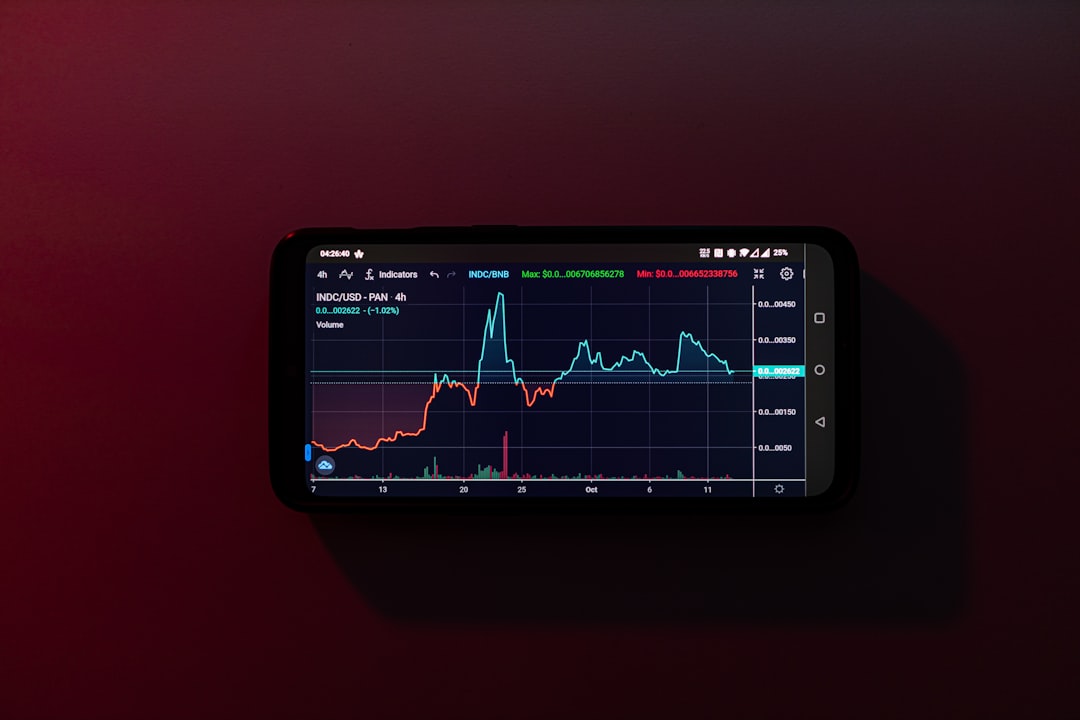Cryptocurrency trading has become increasingly popular in recent years, with more and more people looking to capitalize on the potential profits that can be made in this volatile market. However, navigating the world of crypto trading can be complex and overwhelming, especially for beginners. This is where mentorship plays a crucial role. A mentor can provide guidance, support, and valuable insights that can help traders achieve success in this fast-paced industry.
Mentorship is a relationship between an experienced trader and a less experienced trader, where the mentor provides guidance and advice based on their own knowledge and experience. In the world of crypto trading, having a mentor can make all the difference between success and failure. A mentor can help traders navigate the complexities of the market, avoid common pitfalls, and develop effective trading strategies.
Key Takeaways
- Mentorship is crucial for success in crypto trading.
- Look for mentors with experience, knowledge, and a willingness to teach.
- Setting realistic goals is essential for successful trading.
- Develop a solid trading plan with the help of experienced mentors.
- Effective market analysis, risk management, and trading psychology are key to long-term success in crypto trading.
Finding the Right Crypto Trading Mentor: Qualities to Look For
Finding the right mentor is crucial for success in crypto trading. It is important to find someone who is experienced, knowledgeable, and trustworthy. Look for a mentor who has a proven track record of success in the crypto market and who is willing to share their knowledge and insights.
Communication skills are also an important quality to look for in a mentor. A good mentor should be able to explain complex concepts in a clear and concise manner, making it easier for the mentee to understand and apply them in their own trading strategies. Availability is another important factor to consider when choosing a mentor. A mentor who is readily available to answer questions and provide guidance can greatly enhance the learning experience.
Setting Realistic Goals: A Key Component of Successful Crypto Trading
Setting realistic goals is essential for success in crypto trading. It is important to set achievable goals that are specific, measurable, attainable, relevant, and time-bound (SMART). Setting unrealistic goals can lead to frustration and disappointment, while setting achievable goals can help traders stay motivated and focused.
One tip for setting realistic goals is to start small. Instead of aiming to make a huge profit in a short amount of time, start by setting smaller, more achievable goals. This will help build confidence and momentum, making it easier to achieve larger goals in the future. It is also important to track progress towards goals. This can be done by keeping a trading journal or using a trading platform that provides analytics and performance metrics.
Developing a Solid Trading Plan: Tips and Tricks from Experienced Mentors
| Topic | Description |
|---|---|
| Goal Setting | Identifying and setting achievable trading goals |
| Risk Management | Developing a plan to manage risk and minimize losses |
| Trading Strategy | Creating a strategy that aligns with your goals and risk tolerance |
| Technical Analysis | Using charts and indicators to identify trends and potential trades |
| Psychology | Understanding the emotional aspects of trading and developing a disciplined mindset |
| Backtesting | Testing your strategy on historical data to evaluate its effectiveness |
| Journaling | Keeping a record of your trades and analyzing your performance |
| Continuing Education | Staying up-to-date with market trends and learning from experienced mentors |
Having a well-defined trading plan is crucial for success in crypto trading. A trading plan outlines the rules and strategies that traders will follow when making trading decisions. It helps minimize risk and maximize profits by providing a clear framework for decision-making.
When developing a trading plan, it is important to set entry and exit points for trades. This helps traders avoid impulsive decisions and stick to their strategy. Diversifying investments is another important aspect of a solid trading plan. By spreading investments across different cryptocurrencies, traders can reduce the risk of losing all their capital if one investment performs poorly.
Analyzing Market Trends: Tools and Techniques for Effective Trading
Analyzing market trends is essential for making informed trading decisions. By understanding market trends, traders can identify potential opportunities and make more accurate predictions about future price movements.
There are several tools and techniques that can be used to analyze market trends. Technical analysis involves studying historical price data and using charts and indicators to identify patterns and trends. This can help traders predict future price movements and make more informed trading decisions.
Fundamental analysis, on the other hand, involves analyzing the underlying factors that affect the value of a cryptocurrency. This includes factors such as supply and demand, regulatory changes, and market sentiment. By understanding these factors, traders can make more informed decisions about when to buy or sell a cryptocurrency.
Risk Management: Strategies for Mitigating Losses and Maximizing Gains

Risk management is a crucial aspect of successful crypto trading. It involves strategies and techniques for mitigating losses and maximizing gains. By effectively managing risk, traders can protect their capital and increase their chances of long-term success.
One strategy for mitigating risk is to set stop-loss orders. A stop-loss order is an instruction to sell a cryptocurrency when it reaches a certain price, limiting potential losses. Diversifying investments is another important risk management strategy. By spreading investments across different cryptocurrencies, traders can reduce the risk of losing all their capital if one investment performs poorly.
Technical Analysis: Using Charts and Indicators to Make Informed Trading Decisions
Technical analysis is a key tool for making informed trading decisions. It involves studying historical price data and using charts and indicators to identify patterns and trends. By understanding these patterns and trends, traders can make more accurate predictions about future price movements.
There are several charts and indicators that can be used for technical analysis. Moving averages, for example, are used to identify trends by smoothing out price fluctuations over a specific period of time. Bollinger Bands, on the other hand, are used to measure volatility by plotting two standard deviations above and below a moving average.
Fundamental Analysis: Understanding the Factors that Affect Crypto Prices
Fundamental analysis is another important tool for understanding the factors that affect crypto prices. It involves analyzing the underlying factors that can impact the value of a cryptocurrency, such as supply and demand, regulatory changes, and market sentiment.
By understanding these factors, traders can make more informed decisions about when to buy or sell a cryptocurrency. For example, if there is news of a regulatory crackdown on cryptocurrencies, it may be a good time to sell or avoid investing in that particular cryptocurrency.
Trading Psychology: Overcoming Emotions and Staying Focused on Your Goals
Trading psychology plays a crucial role in crypto trading. It involves managing emotions and staying focused on long-term goals. Emotions such as fear and greed can cloud judgment and lead to impulsive decisions that can result in losses.
One tip for managing emotions is to set realistic expectations. It is important to understand that crypto trading is a volatile and unpredictable market, and not every trade will be profitable. By setting realistic expectations, traders can avoid disappointment and make more rational decisions.
Avoiding impulsive decisions is another important aspect of trading psychology. It is important to stick to a well-defined trading plan and avoid making trades based on emotions or short-term market fluctuations.
The Benefits of Mentorship in Achieving Long-Term Success in Crypto Trading
In conclusion, mentorship plays a crucial role in achieving long-term success in crypto trading. A mentor can provide guidance, support, and valuable insights that can help traders navigate the complexities of the market and develop effective trading strategies.
By finding the right mentor, setting realistic goals, developing a solid trading plan, analyzing market trends, managing risk, using technical and fundamental analysis, and mastering trading psychology, traders can increase their chances of success in the crypto market.
It is important for traders to continue learning and seeking out mentors even after they have achieved some level of success. The crypto market is constantly evolving, and staying ahead requires ongoing education and adaptation.
By seeking out mentors and continuing to learn, traders can position themselves for long-term success in this rapidly evolving market.
If you’re looking to take your crypto trading skills to the next level, you won’t want to miss this article on advanced strategies from crypto trading mentors. But why stop there? Expand your knowledge even further with this insightful piece on improving your test-taking skills. Whether you’re a seasoned trader or a student preparing for exams, these 10 simple tips will help you excel in any high-pressure situation. Don’t miss out on the opportunity to enhance your abilities and achieve success in both the crypto market and academia. Check out the article here.
FAQs
What is the article about?
The article is about advanced strategies for finding mentorship in the field of crypto trading.
What is mentorship?
Mentorship is a relationship between a more experienced or knowledgeable person and a less experienced or knowledgeable person, with the goal of helping the less experienced person develop their skills and knowledge.
Why is mentorship important in crypto trading?
Mentorship is important in crypto trading because it can help traders develop their skills and knowledge, avoid common mistakes, and stay up-to-date with the latest trends and developments in the industry.
What are some basic strategies for finding a mentor in crypto trading?
Some basic strategies for finding a mentor in crypto trading include attending industry events, joining online communities, and reaching out to experienced traders directly.
What are some advanced strategies for finding a mentor in crypto trading?
Some advanced strategies for finding a mentor in crypto trading include seeking out specialized mentorship programs, leveraging social media and networking platforms, and building relationships with industry thought leaders.
What should I look for in a crypto trading mentor?
When looking for a crypto trading mentor, it’s important to look for someone who has a track record of success in the industry, is willing to share their knowledge and experience, and has a teaching style that resonates with you.
How can I make the most of my mentorship experience?
To make the most of your mentorship experience, it’s important to be open to feedback and willing to learn, set clear goals and expectations with your mentor, and take an active role in your own learning and development.

Leave a Reply